Over the course of two years I photographed my grandmother Marjorie Clarke on my weekly visits to her home in rural Butler, Maryland. With her health declining and Alzheimer’s disease loosening her ties to everyday reality, I spent much of my time reading aloud or singing songs to her, attempting to hold her attention as long as possible. Unable to remember my name, she would often ask her nurse Sam, “When is that nice young man coming back?”
Sometimes on my visits we would take trips to a local Episcopal church or go to the senior center with Sam. As my grandmother’s memory continued to fail, these trips slowly changed from stimulating outings to times of intense frustration for her. Her mind became a capricious joker, cutting off her past, then unexpectedly revealing a memory. Questions about what she’d had for lunch drew only a sigh. Eventually she needed to be reminded how to eat, which progressed into a need for someone to feed her.
As Marjorie’s condition worsened, there were frequent stays in the hospital, and finally a room in a nursing home. She seemed frustrated and depressed, her mind wrapped in a haze of confusion after a lifetime of order and clarity. I think my grandmother slowly gave up and let herself slip into silence. Six months after she was moved to the nursing home, she passed away.
Though I was saddened by the unraveling of our connection, I am glad for our time together. On rare occasions Marjorie would experience a moment of clarity, as if the sun had suddenly broken through the clouds. In these fleeting moments, she would become talkative and joyful, asking me, “What is your favorite thing in the world?” This was always her question, as if she were reminding me to pay attention.
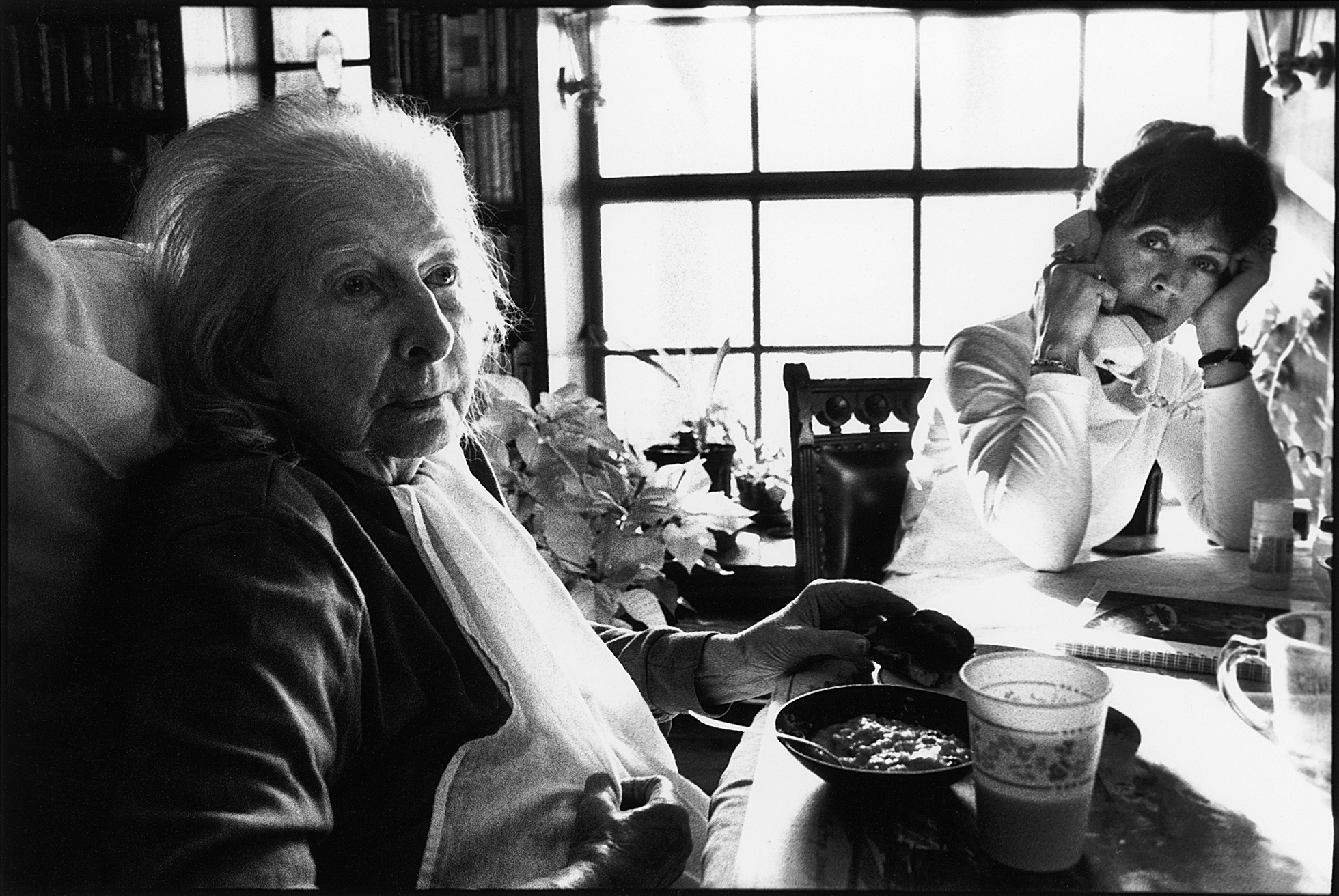
As her Alzheimer’s disease progressed, Marjorie often forgot what she was doing. Here she contemplates her next step as Sam, her nurse, calls the pharmacy for medicines.
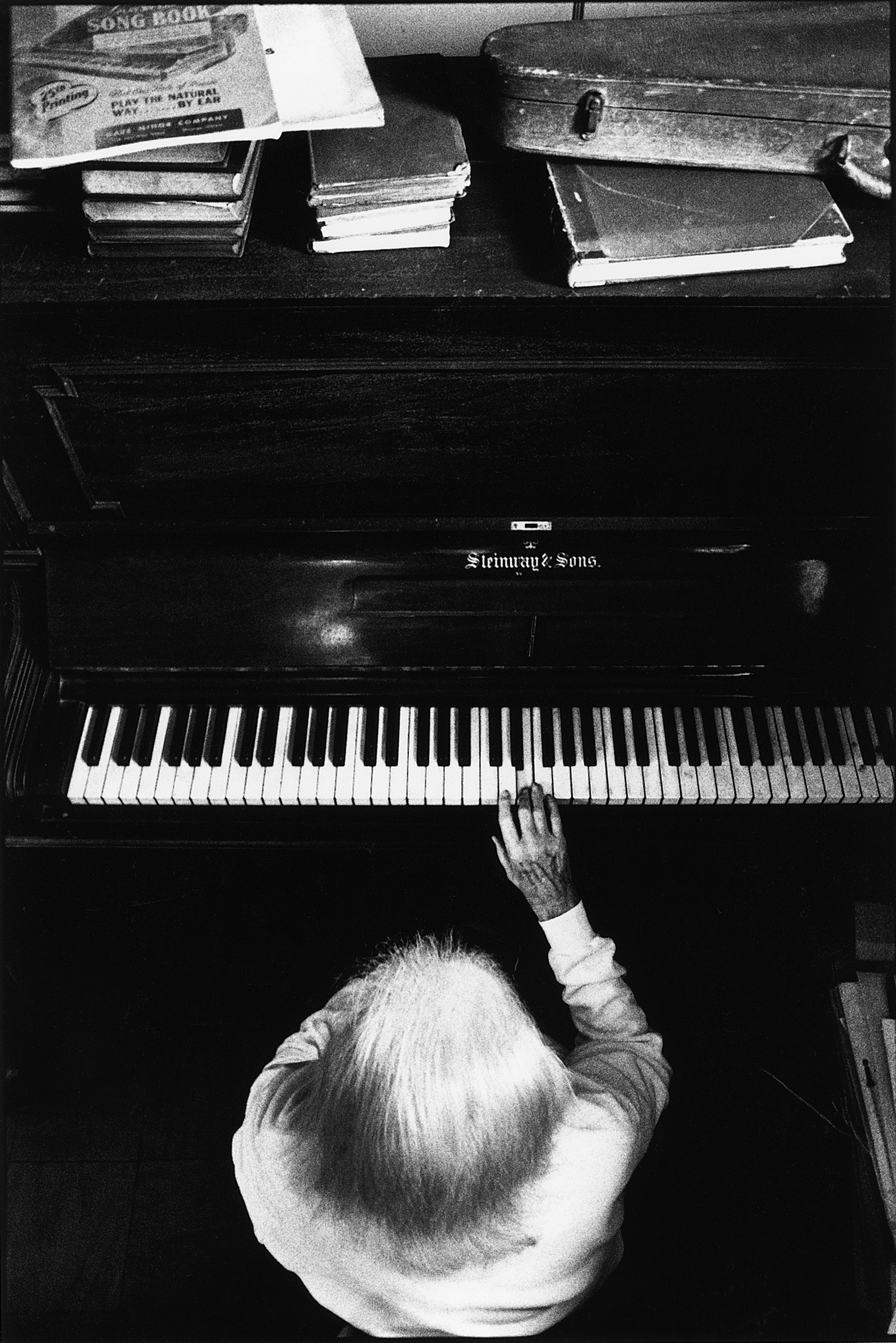
Once an accomplished self-taught pianist, Marjorie plays “Chopsticks,” the only song she remembers.
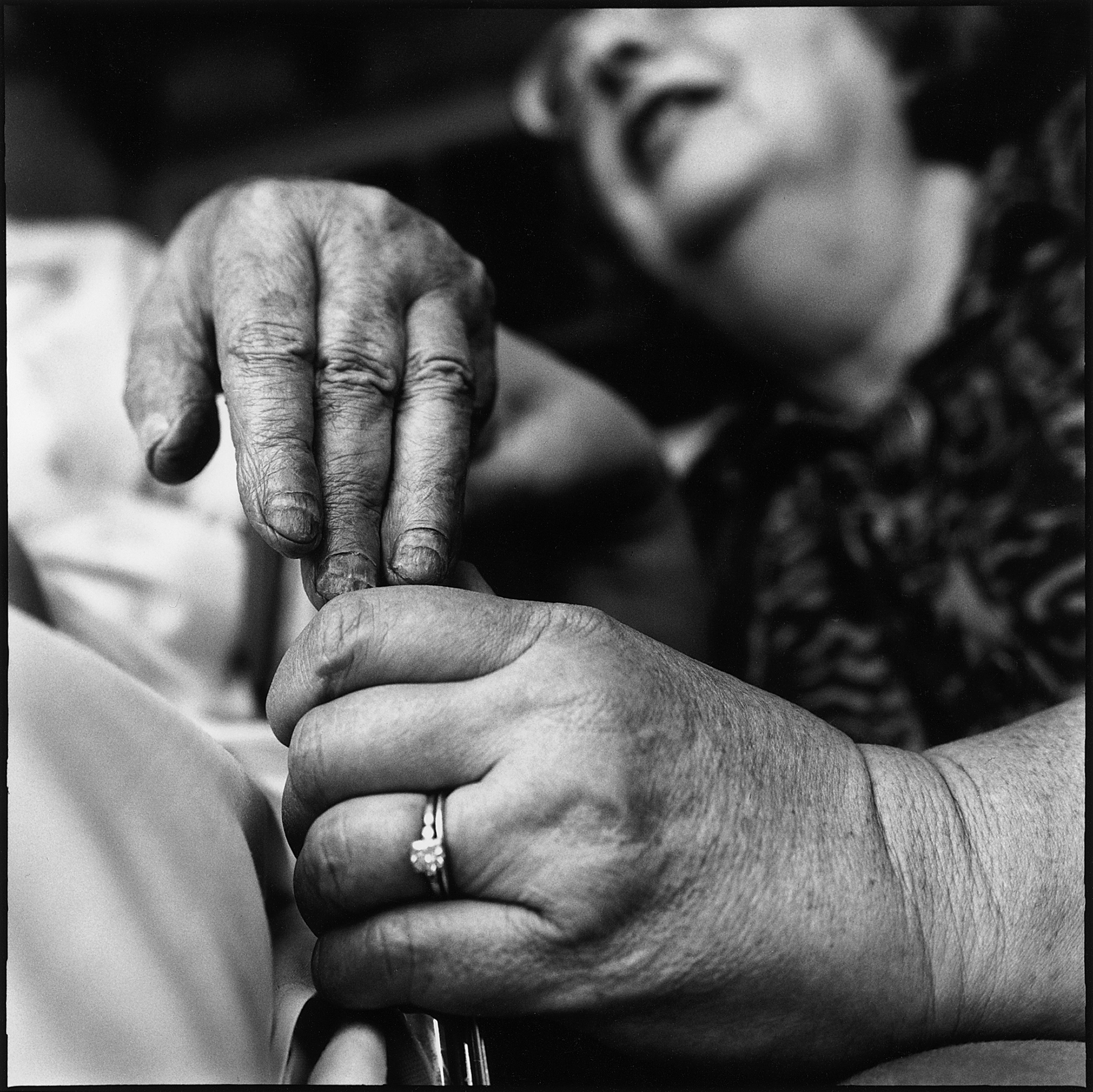
On an afternoon visit, Marjorie’s daughter Mary Virginia sings familiar songs and comforts her mother.
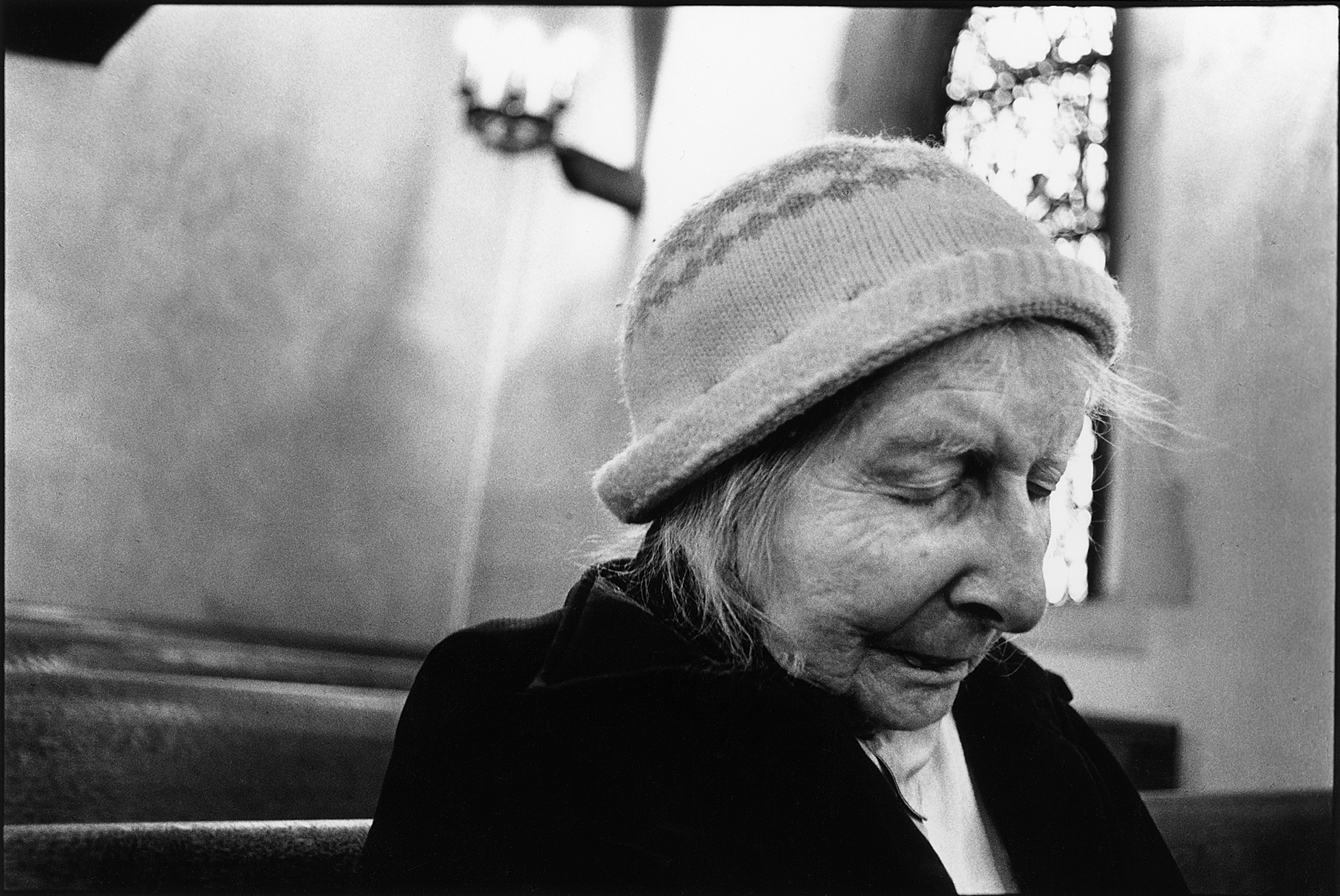
During a service at a local church, Marjorie closes her eyes and tries to sleep.
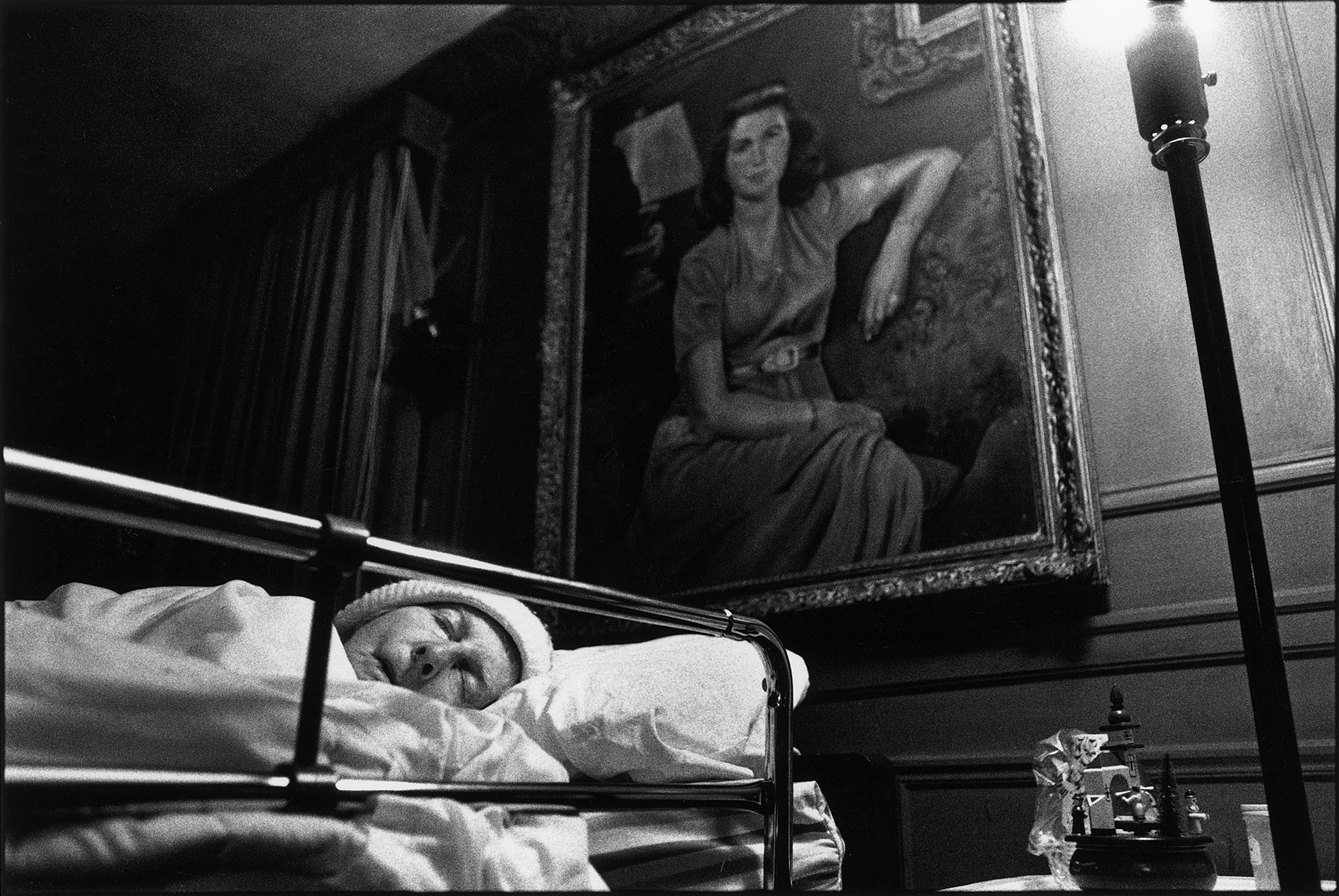
Unable to walk, Marjorie is moved downstairs in her home. She sleeps under a portrait, painted by her husband, of herself at twenty-four.
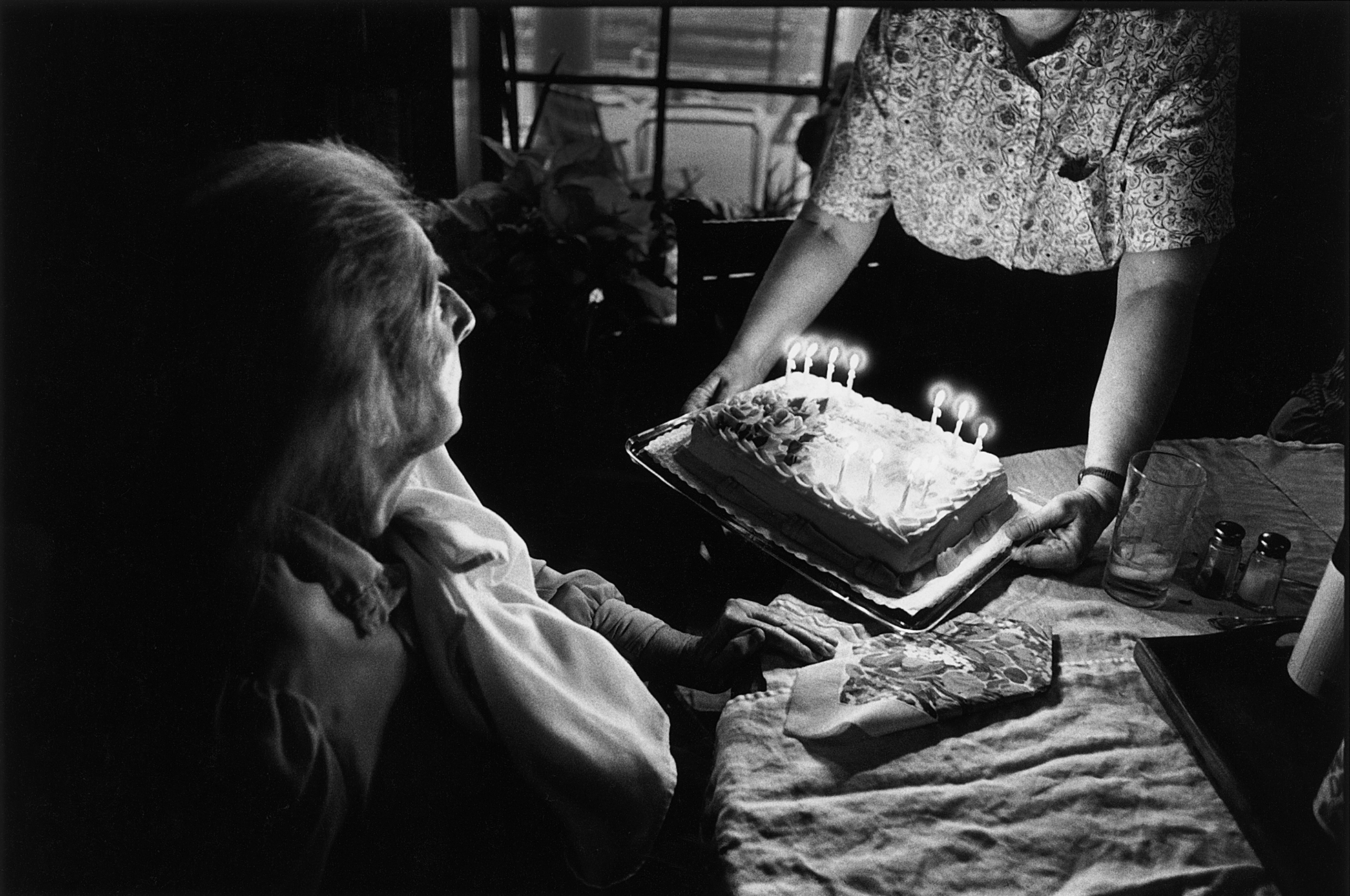
Marjorie is shown the cake for her eldest son’s twenty-fifth wedding anniversary.
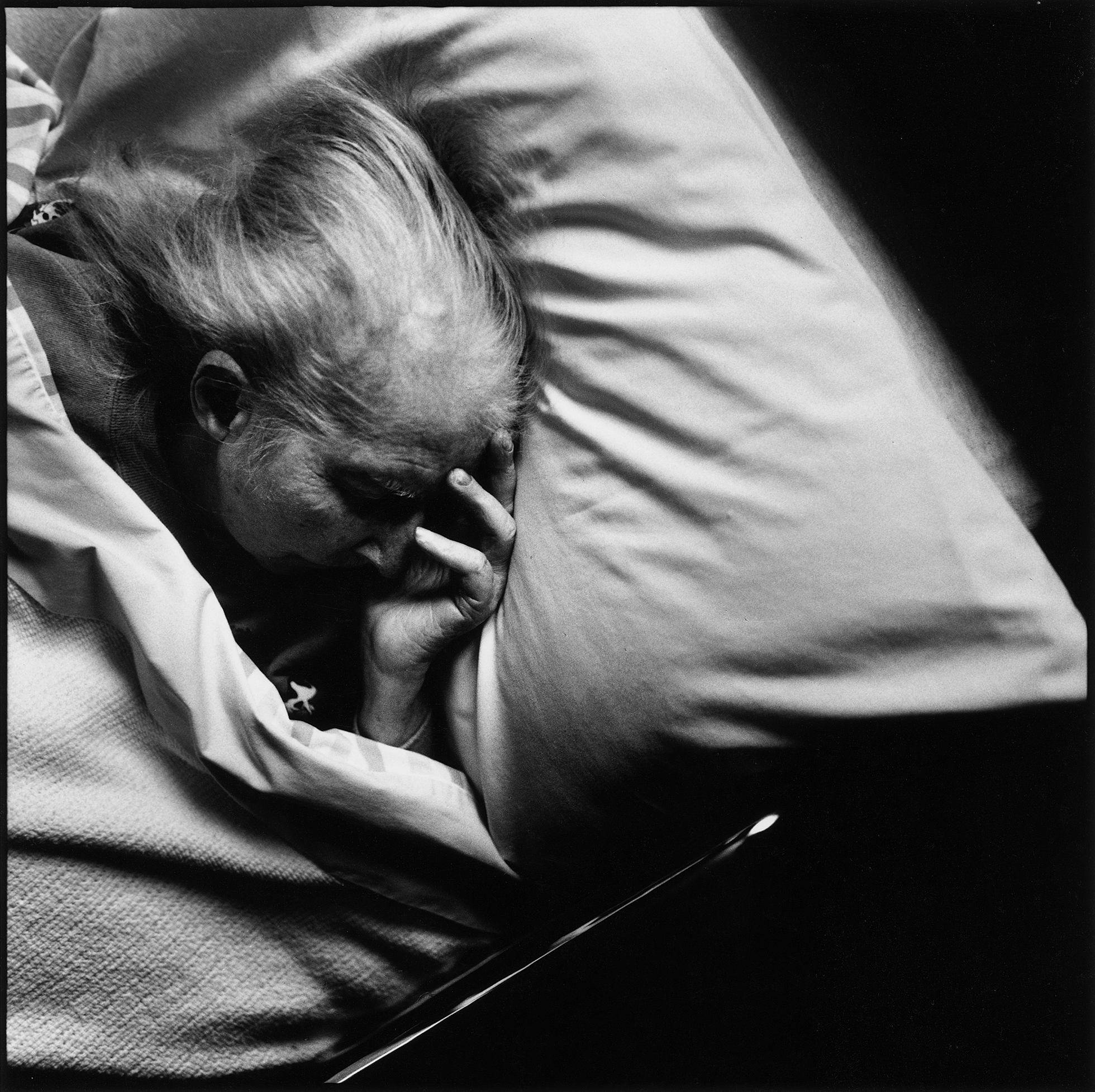
Marjorie asleep at her home in Butler, Maryland. During her last year of life, she seemed most comfortable in the silence of sleep.





